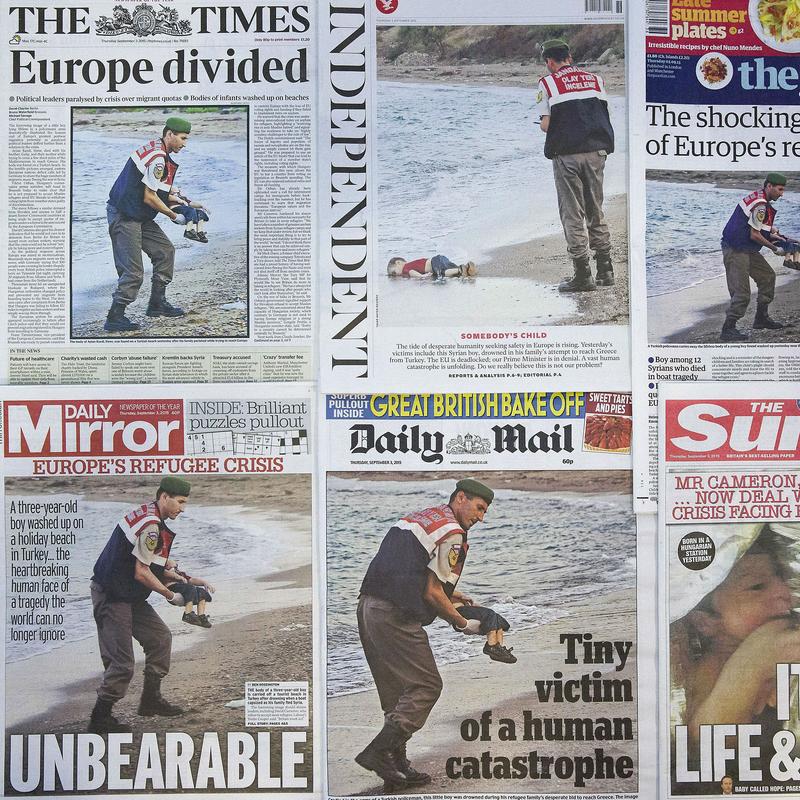************* THIS IS A RUSHED, UNCORRECTED TRANSCRIPT *********
BROOKE: A three year old boy, in a red shirt and short pants. A sweet face, pressed into the surf and sand, drowned. Why does this photograph enrage a world unmoved for so long by Europe’s refugee crisis, after so many dead? Not because he’s a child. There have been many such children. But because it is a single child. A solitary child. A familiar child.
Studies show we are more moved to help when we see the image of one desperate child. That urge shrivels when we’re confronted by two or three or more. And we are affected all the more when that child looks like us. Maybe that’s wired in.
Also, I suspect, photos like these force us to see what we already know. We knew of American abuses of detainees, the black sites, the torture, long before the pictures of Abu Ghraib. It had been reported. We were vaguely aware of the deaths of countless innocents in Viet Nam, but were shocked by the little girl scorched by napalm running naked in a street.
Some editors have chosen not to publish or broadcast or post the picture, and I understand their reasons. We’ve explored those points on this show many times. But I think it should be seen. Not because I believe a picture can change the world. I don’t believe that. But that slow drip, drip, drip of injustice rains down on us all, pounding on the roof of complacency, of cynicism, of indifference we shelter under. As it splashes against the windows, we feel increasingly uneasy. Each drop erodes our fortress a little more. And finally, with enough time, enough misery, the roof caves in. And that’s almost a relief. Maybe the image of little Aylan finally will do it. It shouldn’t require a death like his. But it almost always does.


